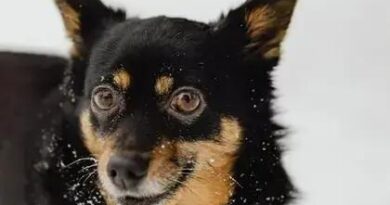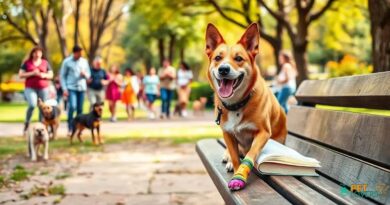O que é correcting bad habits
What is Correcting Bad Habits?
Correcting bad habits in dogs refers to the process of identifying and modifying undesirable behaviors that can disrupt the harmony between pets and their owners. This can include a range of issues, from excessive barking and chewing to more serious behavioral problems such as aggression or anxiety. Understanding the root causes of these habits is crucial for effective correction, as it allows pet owners to implement strategies that address the underlying issues rather than just the symptoms.
The Importance of Early Intervention
Addressing bad habits early on is essential for successful correction. Puppies are particularly impressionable, and habits formed during their formative months can become ingrained if not addressed promptly. Early intervention not only helps in correcting these behaviors but also fosters a stronger bond between the dog and its owner. By establishing clear boundaries and expectations, owners can guide their pets toward more desirable behaviors from a young age.
Common Bad Habits in Dogs
Some of the most common bad habits in dogs include jumping on people, digging, chewing on furniture, and barking excessively. Each of these behaviors can stem from various motivations, such as boredom, anxiety, or a lack of training. Identifying the specific triggers for these habits is the first step in the correction process, as it allows owners to tailor their approach to each individual dog’s needs.
Positive Reinforcement Techniques
One of the most effective methods for correcting bad habits is through positive reinforcement. This technique involves rewarding desirable behaviors to encourage their repetition. For instance, if a dog stops barking when commanded, offering a treat or praise reinforces that behavior. Positive reinforcement not only helps in correcting bad habits but also builds trust and strengthens the relationship between the dog and its owner.
Consistency is Key
Consistency plays a vital role in correcting bad habits. Dogs thrive on routine and clear expectations, so it’s important for owners to remain consistent in their commands and responses. Inconsistent training can confuse dogs and hinder their ability to learn. Establishing a consistent training schedule and using the same commands for specific behaviors will help reinforce the desired actions and discourage unwanted habits.
Redirecting Behavior
Redirecting behavior is another effective strategy for correcting bad habits. This involves guiding the dog toward a more appropriate behavior when it begins to engage in an undesirable one. For example, if a dog starts chewing on furniture, providing a chew toy can redirect its focus. This not only helps in correcting the bad habit but also gives the dog an acceptable outlet for its natural behaviors.
Seeking Professional Help
In some cases, correcting bad habits may require the assistance of a professional dog trainer or behaviorist. These experts can provide valuable insights and tailored strategies for addressing specific issues. They can also help owners understand their dog’s behavior better and teach them effective training techniques. Seeking professional help is especially important for severe behavioral problems that may pose a risk to the dog or others.
The Role of Exercise and Mental Stimulation
Providing adequate exercise and mental stimulation is crucial in preventing and correcting bad habits. Dogs that are bored or under-exercised are more likely to engage in destructive behaviors. Regular physical activity, combined with interactive toys and training exercises, can help keep a dog mentally and physically engaged, reducing the likelihood of developing bad habits.
Patience and Understanding
Correcting bad habits in dogs requires patience and understanding from their owners. Behavioral changes take time, and setbacks are a normal part of the process. It’s important for owners to remain calm and supportive, providing encouragement and praise as their dog progresses. By fostering a positive training environment, owners can help their dogs overcome bad habits and develop into well-behaved companions.




